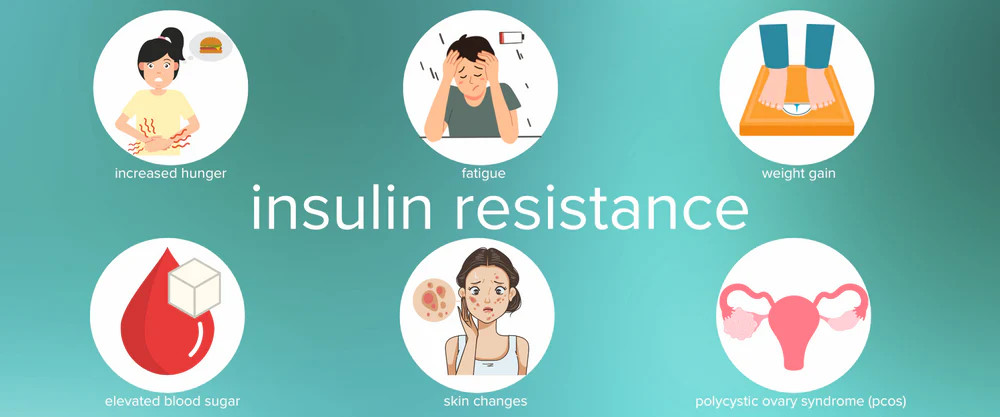The “Golden Key” to Metabolic Health: A Guide to Insulin Testing
In our pursuit of health, we often focus on blood sugar levels, but easily overlook the crucial “commander” behind it—insulin. Insulin is the only hormone in the human body that can lower blood sugar, and its function directly affects our energy metabolism and long-term health. Today, let’s unveil the mystery of insulin testing and understand this “golden key” to understanding metabolic health.
Insulin: The body’s energy regulator
Imagine that the food we eat, especially carbohydrates, is converted into glucose (blood sugar) in our blood to provide energy for our bodies. Insulin, acting like a highly efficient energy coordinator, is secreted by the beta cells of the pancreas. Its core task is to command the body’s various tissue cells (such as muscle and fat cells) to open their “gates” to absorb glucose, convert it into energy, or store it, thereby maintaining blood sugar at a stable level.
If this “director” becomes inefficient (insulin resistance) or is severely understaffed (insulin deficiency), blood sugar can rise uncontrollably. Over the long term, this can set the stage for diabetes and its complications.
Why Test Insulin? It’s Not Just About Blood Sugar
Many people ask, “Can’t I just test my blood sugar?” The answer is no. Blood sugar is the result, while insulin is the cause. Insulin testing allows us to gain earlier and deeper insights into the true state of our body’s metabolism.
1. Early Detection of Insulin Resistance: This is a key feature of the prediabetic stage. At this point, a patient’s blood sugar might still be normal, but to overcome “insulin resistance,” the body already needs to secrete much more insulin than normal to maintain stable glucose levels. Insulin testing can accurately capture this phase of “compensatory hyperinsulinemia,” providing a much earlier health warning.
2.Aiding in Diagnosing Diabetes Type:Type 1 diabetes involves an absolute lack of insulin; Type 2 diabetes often initially presents with normal or even high insulin levels. Measuring insulin helps doctors distinguish more accurately between diabetes types, providing crucial evidence for creating personalized treatment plans.
3. Investigating Unexplained Hypoglycemia:Certain pancreatic tumors (like insulinomas) can cause abnormally excessive insulin secretion, leading to low blood sugar. Testing insulin levels aids in diagnosing such conditions.
4. Assessing Pancreatic Beta-Cell Function: Through specialized tests (like the Insulin Release Test), doctors can evaluate the pancreas’s ability to secrete insulin in response to a glucose load, determining the severity and stage of the condition.
Who Should Consider Insulin Testing?
Consulting a doctor and having your insulin tested would be beneficial if you fall into any of the following categories:
- Have a family history of diabetes and wish to undergo early risk assessment.
- A physical exam revealed impaired fasting glucose or abnormal glucose tolerance.
- Have obesity, high blood pressure, high cholesterol, or polycystic ovary syndrome.
- Experiencing unexplained pre-meal hunger, palpitations, tremors, or other symptoms of hypoglycemia.
How is Testing Done and How are Results Interpreted?
Insulin testing is usually performed by drawing blood. A common method is the “insulin release test,” which simultaneously measures insulin and blood glucose levels at different time points after fasting and oral glucose administration, and plots their dynamic changes.
Interpreting the report requires a healthcare professional,** but you can generally understand:
- Fasting insulin: High levels may indicate insulin resistance.
- Peak insulin concentration and area under the curve (AUC): Reflects pancreatic reserves and secretory capacity.
- Insulin to blood glucose ratio: Provides a comprehensive assessment of insulin efficiency.
Please note: Fasting for 8-12 hours is usually required before testing, and avoid using medications that may affect the results. Please follow your doctor’s instructions for specific preparation.
Conclusion
“Know yourself and know your enemy, and you will never be defeated.” The same applies to managing health. Insulin testing allows us to move beyond just observing the “blood sugar” surface phenomenon and delve into the root causes of metabolic disorders. It is an in-depth “audit” of the body’s internal energy regulation system, providing crucial scientific evidence for early intervention, precise treatment, and health management.
Post time: Nov-20-2025






